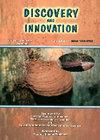影响肯尼亚瓦辛吉舒地区感染艾滋病毒母亲生育选择的因素
引用次数: 0
摘要
近二十年来,肯尼亚一直是艾滋病毒/艾滋病的主要受害者。由于生下感染艾滋病毒婴儿的可能性增加,这一问题在育龄母亲中正在加剧。提供安全有效的避孕药具和高质量的生殖健康咨询可以帮助妇女进行更安全的性行为,并在更负责任和知情的基础上决定未来的生育。因此,2005年9月至2005年12月在肯尼亚裂谷省瓦辛吉舒区开展了一项研究,以确定避孕知识如何影响生育选择。数据是通过系统随机抽样从400名感染艾滋病毒的育龄母亲中收集的。访谈安排在三个地点对受访者进行。数据采用描述性统计进行分析。关于避孕的知识在答复者中几乎是普遍的,99.0%的答复者至少知道一种妇女可以用来避免怀孕的方法。了解至少3种计划生育方法的占多数(41.6%),了解至少4种计划生育方法的占30.4%,了解6种以上计划生育方法的占3.5%。调查发现,随着受访者了解的方法数量的增加,想要更多孩子的愿望显著增加;了解一种方法的受访者中没有人希望得到更多的孩子,而知道至少三种方法的受访者中有30.5%希望得到更多的孩子。然而,那些知道四种以上计划生育方法的人想要额外生育的愿望大大减少,而那些知道六种以上计划生育方法的人没有一个想要额外生育。从这项研究中可以看出,只有掌握了足够的计划生育知识,人们才能采取更好的计划生育做法。因此,建议对感染艾滋病毒的母亲加强生殖健康咨询。本文章由计算机程序翻译,如有差异,请以英文原文为准。
Factors Influencing Fertility Choices Among HIV Infected Mothers in Uasin Gishu District, Kenya
Kenya has borne the major brunt of HIV/AIDS for close to two decades. The problem being exacerbated among childbearing mothers as the probability of giving birth to HIV infected baby is heightened. Availability of safe and effective contraceptive and high quality reproductive health counseling can help a woman practice safer sex and determine her future childbearing on a more responsible and informed basis. Therefore, a study to determine how knowledge on contraceptives influenced fertility choices was conducted in Uasin Gishu district Rift valley province in Kenya from September 2005 to December 2005. Data was collected by systematic random sampling from 400 HIV infected mothers in their reproductive age. Interview schedules were administered to the respondents at three sites. Data was analyzed by descriptive statistics. Knowledge on contraceptive was almost universal among the respondents with 99.0% of the respondents being aware of at least one method that women could use to avoid pregnancy. Majority (41.6%) knew at least three methods of family planning followed by 30.4% who knew at least four methods while few respondents (3.5%) knew more than six methods of family planning. Desire for additional children was found to increase markedly with the number of methods that respondents were knowledgeable about; none of the respondents who were knowledgeable about one method desired to get any more additional children whereas 30.5% of those who knew at least three methods desired to get additional children. However, desire for additional births reduced drastically among those who knew more than four family planning methods with none of those who knew six methods desiring to get additional children. It is seen from the study that it is only with adequate knowledge regarding family planning that one is able to adopt better family planning practices. It is thus recommended that reproductive health counseling be improved among the HIV infected mother.
求助全文
通过发布文献求助,成功后即可免费获取论文全文。
去求助

 求助内容:
求助内容: 应助结果提醒方式:
应助结果提醒方式:


